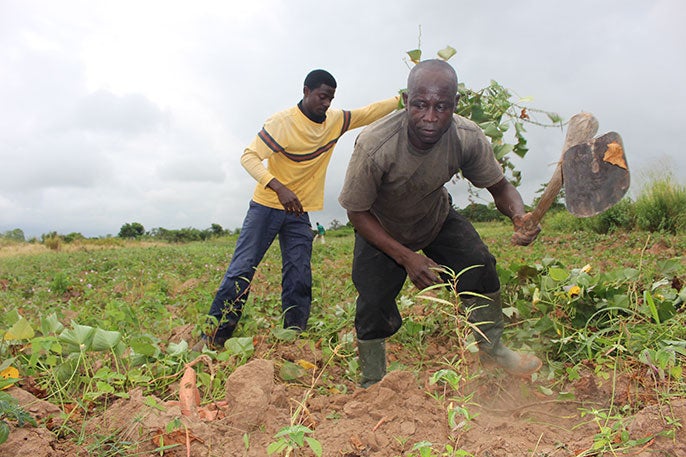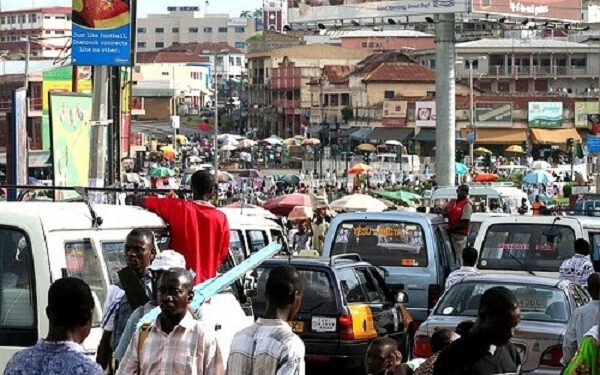Agriculture remains the fundamental pillar of every nation’s economy, serving as the primary source of food security, employment, and industrial raw materials. Despite rapid technological advancement and the expansion of industrial sectors, agriculture continues to play a critical role in national development.
In many developing economies, including Ghana, the sector is not just a contributor to economic growth but also a vital means of livelihood for millions of people. The agricultural sector in Ghana accounts for a significant portion of the country’s Gross Domestic Product (GDP) and employs nearly half of the workforce.
With a diverse range of activities, including farming, livestock production, agro-processing, and exports, agriculture provides both direct and indirect employment. It is, therefore, not in competition with other industries but rather serves as a complementary force in job creation and national economic expansion.
The relevance of agriculture extends beyond economic growth to ensuring food security and sustainability. A stable agricultural sector guarantees the availability of food, mitigating hunger and malnutrition, which remain critical challenges in many parts of the world.
In Ghana, food insecurity affects a significant percentage of the population, particularly in rural areas where agricultural productivity is often constrained by climatic factors and inadequate farming resources.
Increased investment in agriculture through improved farming techniques, irrigation systems, and storage facilities can help reduce food shortages and stabilize prices. Sustainable agricultural practices further ensure the longevity of the sector, allowing it to meet the demands of present and future generations without degrading the environment.
Agriculture: a Driver of Rural Development
Beyond food production, agriculture is a key driver of rural development. Many communities in Ghana depend entirely on farming for their economic sustenance. When the agricultural sector thrives, it creates opportunities for wealth generation, entrepreneurship, and industrialization.
Agro-processing industries, which transform raw farm produce into finished goods, provide additional employment opportunities and enhance value addition. The export of agricultural products such as cocoa, cashew, and palm oil remains one of Ghana’s key foreign exchange earners, reinforcing the importance of the sector in maintaining economic stability.
Cocoa production alone contributes billions of dollars annually in export earnings, positioning Ghana as a leading global producer. Government initiatives such as the Planting for Food and Jobs (PFJ) program have sought to stimulate growth in the sector by increasing domestic food production, reducing dependency on imports, and ensuring that agriculture remains a viable means of national development.

Despite its immense potential, the agricultural sector in Ghana faces significant challenges that hinder its growth and productivity. One of the major obstacles is the limited participation of young people in farming and agribusiness. Many Ghanaian youth perceive agriculture as an unattractive career option, often associating it with poverty and backbreaking labor.
This perception has led to increased migration from rural to urban areas in search of white-collar jobs, leaving an aging farming population behind. However, agriculture holds vast potential for youth employment if the necessary interventions are made. Empowering young people through education, mentorship, and access to land and finance can encourage them to view agriculture as a profitable and sustainable career path.
Agricultural Education
Agricultural education is an essential tool for equipping young people with the technical knowledge and skills required for modern farming and agribusiness. Institutions such as the University of Ghana, Kwame Nkrumah University of Science and Technology (KNUST), and other agricultural colleges across the country offer specialized training programs in crop and animal production, agribusiness management, and food processing.
Incorporating agricultural education into the national curriculum at the basic and secondary levels can introduce students to the opportunities within the sector from an early age. In addition to formal education, vocational training programs and apprenticeships can provide hands-on experience, allowing young farmers to adopt best practices in farming, irrigation, and mechanization.
Access to land and financial support remains a significant barrier for young farmers in Ghana. Traditional land tenure systems often make it difficult for youth to acquire farmland, as land ownership is predominantly controlled by older generations.
Government policies should prioritize youth-friendly land acquisition schemes to enable young people to establish their farms and agribusiness ventures. Additionally, financial institutions must provide tailored credit facilities, grants, and low-interest loans to support young farmers.
Initiatives such as the Ghana Incentive-Based Risk-Sharing System for Agricultural Lending (GIRSAL) have been introduced to facilitate agricultural financing, but more efforts are needed to ensure that youth-specific financial support mechanisms are widely available and accessible.
Mentorship and networking play a crucial role in attracting young people to agriculture. Many successful agribusiness entrepreneurs today started with the guidance and support of experienced farmers and industry professionals. Establishing mentorship programs and farmer cooperatives can create platforms for knowledge exchange, skill development, and business partnerships.
Agricultural extension services should also be strengthened to provide young farmers with technical advice, pest and disease management strategies, and market linkages. Encouraging digital innovation through mobile applications, e-commerce platforms, and precision farming technology can further enhance youth participation in the sector.
Market accessibility remains another major challenge for Ghanaian farmers, as inadequate transportation infrastructure, price fluctuations, and the dominance of middlemen often limit their ability to sell produce at competitive prices. Many rural farmers struggle to get their goods to urban markets due to poor road networks and high transportation costs.

Addressing this issue requires government investment in farm-to-market roads, storage facilities, and market centers where farmers can sell their produce directly to consumers. Strengthening farmer cooperatives and unions can also improve bargaining power, ensuring that farmers receive fair prices for their goods. Moreover, expanding agro-processing industries can help reduce post-harvest losses, increase the value of raw agricultural products, and boost overall market access.
The reliance on rain-fed agriculture in Ghana makes farming highly vulnerable to climate variability and seasonal droughts. Inadequate irrigation systems limit agricultural productivity, particularly in the northern regions, where prolonged dry spells frequently lead to crop failures and food shortages.
Irrigation Infrastructure
Expanding irrigation infrastructure is essential for ensuring year-round farming, improving food security, and increasing agricultural output. Government agencies such as the Ghana Irrigation Development Authority (GIDA) should accelerate the development of small-scale irrigation projects and promote the use of modern irrigation technologies such as drip and solar-powered irrigation systems.
Climate change also poses a significant threat to agriculture, as rising temperatures, erratic rainfall patterns, and soil degradation reduce yields and increase production costs.
To combat these challenges, farmers should be encouraged to adopt sustainable agricultural practices, including agroforestry, organic farming, and conservation agriculture. Promoting the use of drought-resistant crop varieties and efficient water management techniques can enhance resilience to climate change and ensure long-term agricultural sustainability.
Addressing these systemic challenges requires a multi-stakeholder approach involving policymakers, the private sector, and international development partners. Governments must implement policies that support agricultural innovation, improve infrastructure, and provide incentives for young people to venture into farming.
Private sector investment in agribusiness and value chain development can create new employment opportunities and boost overall sector performance. International organizations such as the Food and Agriculture Organization (FAO) and the World Bank can contribute technical expertise and funding to support large-scale agricultural development projects.
Agriculture remains the backbone of Ghana’s economy and a critical tool for national development. Its contribution to economic growth, food security, and employment generation cannot be overstated.
While the sector faces numerous challenges, strategic interventions such as youth empowerment, improved market access, climate resilience, and financial support can unlock its full potential. By modernizing agriculture and making it more attractive to young people, Ghana can build a more sustainable and prosperous future.
With the right investments, policies, and collaborative efforts, agriculture will continue to be the driving force behind economic transformation, ensuring food security and prosperity for generations to come.
The Writer: Ghartey Anobil Francis, Student (ING./Masters) Life Science University Prague and Youth Activist in Agriculture
READ ALSO: ECG Missing Containers: Minister Jinapor Vows Full Accountability























